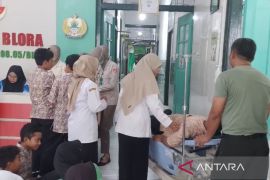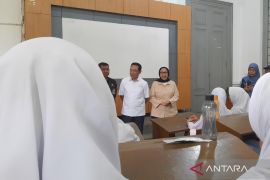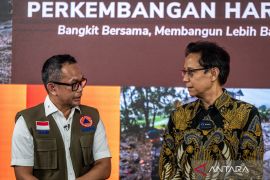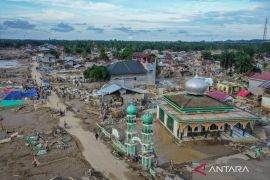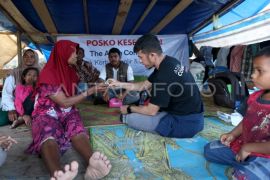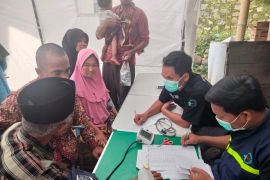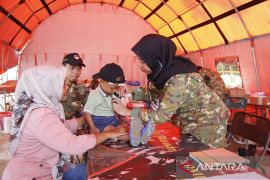"I believe that currently, technology is ever-developing, which eventually will also change humanity," Sadikin noted in a statement received here on Tuesday.
The minister highlighted that the use of AI in the medical field can provide more accurate assistance.
According to Sadikin, the human body has more than 30 million genetic variants, 87 billion neurons in the brain, 300 trillion cells, and 37 trillion microbes, all of which are interconnected and influence an individual's condition.
"Imagine using the empirical method like usual to learn about all of this. Hence, AI technology must be used (as best as possible), more than just for playing chess or ChatGPT, to get to know how a body's system works scientifically," he remarked.
Through comprehensive analysis using AI, the results can serve as help for health personnel in providing the best care for all patients, according to the minister.
Sadikin remarked that another change that AI can bring about is improving the manner in which doctors work by helping them to detect non-infectious diseases, such as heart disease, in an effective, efficient, and precise manner.
"In the past, doctors detected heart disease using a stethoscope, listening to the heartbeat, and then diagnosing heart disease. I think this is not scientific. How could a doctor know it is heart disease based on sounds alone?" he questioned.
Onwards, the technology has changed, with electrocardiography detecting better, he stated. He remarked that CT scanners were introduced that can spot heart disease by scanning the thoracic region.
Sadikin remarked that the latest technique is genetic testing to spot mutations that can cause heart disease.
"What I want to say is that (this technology) will change the health sector significantly," he stated.
However, he said, the use of AI in the medical field is nothing new. The government has used WhatsApp in providing telemedicine services during COVID-19 and installed Starlink in remote areas to provide better internet connectivity for public health centers there, he pointed out.
"I expect that Google can assist the government to provide geotagging (feature), so it can help in mapping diseases in the regional scope. By doing so, I believe AI technology can change the health sector significantly," the minister noted.
Google Indonesia's director for government relations and public policy, Putri Alam, stated that her administration is committed to supporting the government in the digitalization of national health services.
"Since last month, Google has collaborated with the Health Ministry to implement AI in health services, such as the possibility of generative AI use in the SATUSEHAT platform," Alam remarked.
According to Alam, such support aligns with Indonesia's plan for digital transformation and the Digital Indonesia Vision 2045.
Related news: Indonesia's telemedicine industry one of fastest-growing: Minister
Related news: Health Ministry launches regulatory sandbox to secure telemedicine
Related news: Controlled pandemic handling has helped curb new waves: Minister
Reporter: Mecca Yumna Ning Prisie
Editor: Azis Kurmala
Copyright © ANTARA 2024


